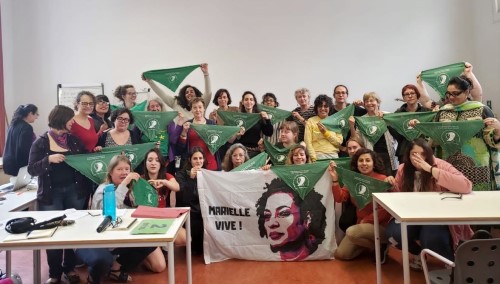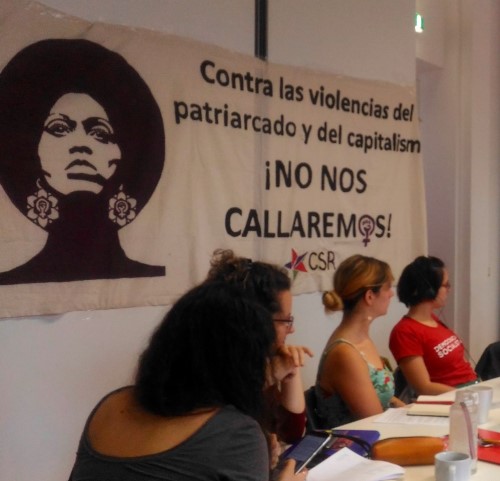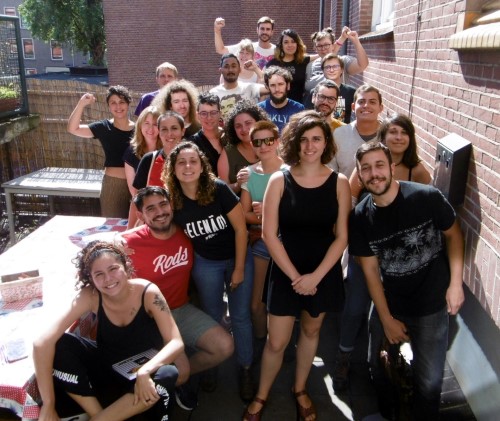
The past summer, the IIRE again organized a Youth School and a Women's seminar.
First up was the Women’s Seminar which took place 13-17 July.
Following the new global rise of women’s movements, the biannual IIRE Women’s seminar brought together women from 20 countries to discuss experiences and strategies for future mobilizations. This meeting had the highest number of participants for a seminar so far: 40 women from Argentina, Belgium, Brazil, Britain, Chile, Denmark, Ecuador, France, Germany, Greece, Italy, Mexico, Netherlands, Pakistan, Philippines, Portugal, Spanish State, Switzerland, Tunisia and Turkey participated.
The five day seminar covered two major points through introductions, language group discussions, and plenaries. The points discussed were:
1) New theoretical contributions, notably social reproduction theory and eco-feminism, emerging from the women's movement.
2) The actual state of the movement, mass movements’ call for a women's strike extending the demands and challenges to patriarchal capitalist society.

To continue the collective work, working groups and coordination teams were formed. These involve a coordination network among Latin American participants, a working group to coordinate women’s strike efforts in different countries, and a working group on social reproduction theory and eco-feminism was formed.
This IIRE Women’s seminar was self-funded with participants’ fees and donations made to IIRE. 15 participants from Global South received partial travel aid.
This year’s youth school took place between 13-25 August in Amsterdam. We had 23 participants for the 10 days of lectures. Participants came from Belgium, Brazil, Denmark, France, Italy, Mexico, Philippines, and the Spanish State. For the second year in a row, the majority of the participants were female. The topics included introduction to our critical Marxism, Women and LGBTIQ struggles and liberation, imperialism and geopolitical disorder, Marx and ecology, revolution and repression in the Middle East, anti-racism, and Europe in crisis. As usual the school operated in three languages: English, French, and Castillian -thanks to our volunteer simultaneous interpreters. Participants took on the tasks of cleaning and cooking during the school organized through work groups.

Both these activities were made possible through donations. We thank everyone who makes it possible for us to organize these activities.
